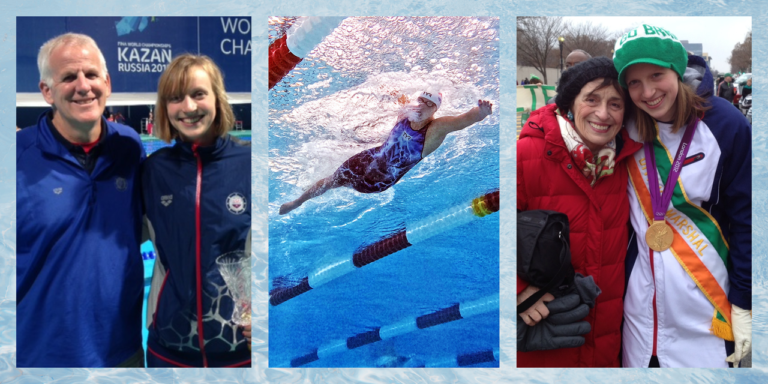There’s still some balancing to be done when it comes to reporting on women’s sports and how female athletes are perceived – the fact that it’s not always about achievements, but that you have to achieve something or be something special to get attention, acclaim and fame.
Not that I’m trying to be that person, but I think a lot of women in sports are doing great things and deserve attention, whether it’s on the court, the field, the pool, wherever. [unlike for male athletes] Sometimes you need to put in a little more effort to get people’s attention.
I don’t want to say there’s a boom in women’s sports right now because that makes it sound like a passing fad, but it does feel like there’s a movement. As one of the most high-profile female athletes of the last decade, do you see progress in how female swimmers and athletes in general are perceived, respected and supported?
The biggest thing I saw was the addition of the 1500m freestyle at the Tokyo Olympics. This is for the future. It’s a huge change and a long time coming, so it’s been special to be a part of it.
Overall, women’s sports, as you say, is not a fad. It started many years ago and we are all trying to continue the momentum. People enjoy watching women’s sports and hopefully they will enjoy watching the U.S. women’s team in the Olympics this summer.
Yes, you did. And you won the first ever gold medal in the 1500m freestyle. It’s not like your name isn’t already in history, but it’s yours forever. Speaking of this summer, you wrote in your book that you don’t usually reveal goals or “hopeful times.” But in broad terms, what would it take for you to make the Paris Olympics a success?
Well, first I have to qualify. Qualifiers are in mid-June. And obviously, heading into Paris I want to qualify in multiple events and bring home some medals. That’s always the goal when you’re part of the U.S. team.
“I have specific time goals that I won’t reveal, but I know they will drive me to compete against the best in the world and put me in a position to come out on top. I’m happy with the progress I’ve made in training over the past few years and I’m excited to see how the summer unfolds and what we can do as a team.
In the book you talk a little bit about how long you plan to continue competing. What are your thoughts now about that and what happens after that?
Right now I’m pretty focused on the present, but competing doesn’t end when the summer is over. I want to compete in LA in 2028. At this point it’s a few years away, so I’m just taking it one year at a time. But right now I see 2028 as my opportunity and I would love to participate, whether it’s one event or multiple events. I see more training, more competition, more swimming in the future.
Thinking back to London, if you could go back in time and tell 15-year-old Katie everything that was going to happen, what would you say to her?
Well, I was pretty happy with the results. After London, I was able to quickly re-set my goals. I didn’t want to be a one-hit wonder. I wanted to continue representing Team USA.
So I have no particular warning to give her. I just want to go back to London and tell 15-year-old Katie that she should be here, that she can do more, and keep smiling. I loved swimming then, but I love it even more now. I feel like I love it a little more every year.
Related:


